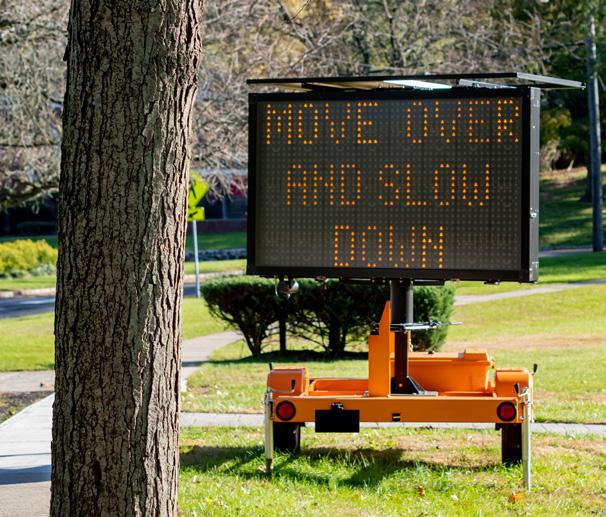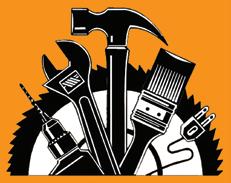

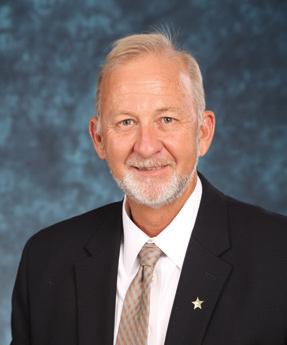



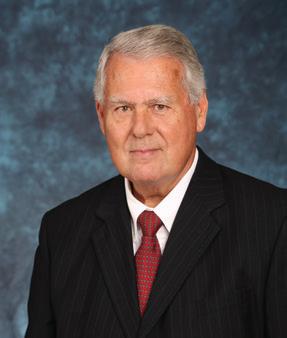

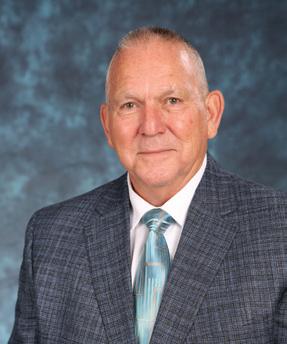


























IN CO-OP DIRECTOR ELECTIONS
Electric co-ops are led by the members they serve, which means you have a say in who governs our co-op. Here are four reasons why you should participate in director elections.
As a member of the co-op, your input matters.
Directors represent you on important energy-related issues.
Directors' decisions can impact electricity rates and future projects.
With convenient voting options available it only takes a minute.

This is the time to vote for directors who will represent you and our community's interests in the co-op. As a member of West Florida Electric Cooperative (WFEC), you have the power to help shape our community's energy future.
Electric co-ops are democratically controlled by the members we serve, which means you have a say in who governs our co-op. By voting in the annual director election, you can weigh in on the leaders who will make important decisions about the future of the cooperative and our local energy needs.
WFEC's board of trustees are community-minded individuals with different skill sets. We rely on them to help us make more informed decisions on long-term priorities and investments. WFEC has nine trustees who live in the co-op's service area. We consider them the eyes and ears of the community because they provide their unique perspective on various local issues.
2024 Candidates:
The following WFEC members are candidates for the 2024 trustee election:
We hope you will cast your vote via mail ballot (mailed to each member on March 28). They are due back to the office of Carr, Riggs & Ingram, Certified Public Accountant, LLC on Wednesday, April 17 at 5:00 p.m.

When ROW crews are trimming in your area, there may be several days between ROW cutting & clean-up crews due to inclement weather, equipment failure or other unforeseen circumstances.
Want to pay your bill with a push of a button?
advantage of our convenient services to manage your power in realtime. Receive email alerts when your new bill is ready and pay it instantly – without paying postage. Log on or download the app today!

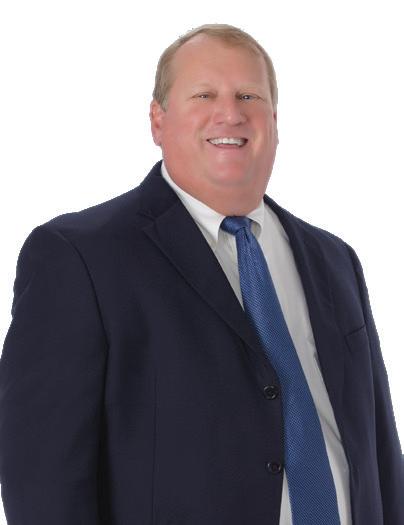

Change is a constant in today's energy industry. Electric co-ops across the country are leaning into change as we explore new ways to meet tomorrow's growing energy needs.
Electric co-ops play a crucial role in ensuring the lights come on every time Americans flip the switch. Our primary responsibility is to our members, and we remain committed to providing service that is safe, reliable, affordable and clean. Energy policy has a profound impact on our ability to accomplish those goals and our national energy policies must embrace this fundamental promise.
The North American Electric Reliability Corporation (NERC), the watchdog for our nation's grid, has issued several warnings about threats to grid reliability, warning that rolling blackouts could soon be the new norm. Nine states experienced blackouts in 2022 when electricity supply simply could not keep up with demand. And over the next five years, NERC forecasts that all or parts of 19 states from Montana to Louisiana are at high risk of rolling blackouts during normal peak conditions.

These warnings should not be taken lightly, which is why electric co-ops are pressing policymakers to recognize the need for time, technology development and new infrastructure, alongside policies that include a diverse mix of energy sources to maintain reliable power.
The economy of the future will be heavily reliant on electricity. From data centers and manufacturing to electric vehicles and electric heat pumps,

the demand for electricity is set to rise dramatically. Co-ops are planning for this surge in demand by investing in infrastructure, technologies and power supplies that will allow them to meet members' needs, but additional challenges lie ahead.
Opposite this increasing demand for electricity, many power plants that generate always available electricity are being shut down without adequate replacements, posing a significant threat to reliability. The Environmental Protection Agency (EPA) is pursuing sweeping new regulations that would force the premature closure of always available power plants while also making it harder to permit, site and build critical new plants.
continued on page 6
Electric co-ops have urged the EPA to withdraw these proposed regulations that would lead to more blackouts, higher costs and uncertainty for Americans.
Electric co-ops are at the forefront of innovation and are already adapting to the unique needs of the members we serve. From community solar projects and energy efficiency programs to carbon capture and advanced nuclear generations, co-ops are leading the way.
Advocating for rational policies in Washington, D.C. that preserve reliability and affordability is crucial. This month, electric cooperative leaders will gather in Washington, D.C., for the annual Legislative Conference where they will meet with members of Congress and federal agencies to discuss key issues and concerns surrounding reliability. This allows co-ops to educate policymakers on the issues that matter most to the American families and businesses we serve.
Today's energy decisions and policies will determine if there are enough resources to meet tomorrow's energy needs. Electric co-ops will continue advocating for their members to ensure a realiable supply of electricity that powers everyday life.




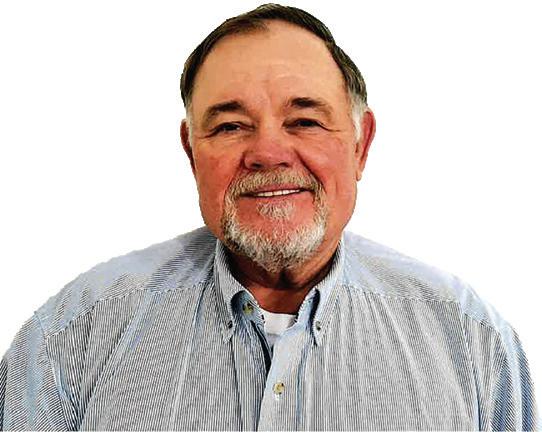











Lineworkers are ranked as one of the 10 most dangerous jobs in the country. Linemen at West Florida Electric Cooperative work rain or shine, in often challenging conditions to ensure you have reliable electricity. We're recognizing our linemen this month as we celebrate Lineman Appreciation. The following column was contributed to & written by Josh Rabon, one of our many dedicated linemen.
My name is Josh Rabon and I am one of the 31 linemen at West Florida Electric Cooperative (WFEC) who work every day in all types of weather conditions to make sure our community has the power to live their lives. My job is hard work but it's very rewarding. I hope this will give you a better look into what we face and more importantly, why we do it.
The Danger:
A lot of people know line work is dangerous because we work near high-voltage electricity. Move just the wrong way or lose focus for a split second, and it could be deadly. You have to be aware of your surroundings and the safety of the person next to you. We work on energized power lines. When you're working with an element of danger that requires concentration, there is no margin for error. I am often working in storms with rain, wind, extreme heat or cold, in the dark, or on the side of the road next to fastmoving traffic.
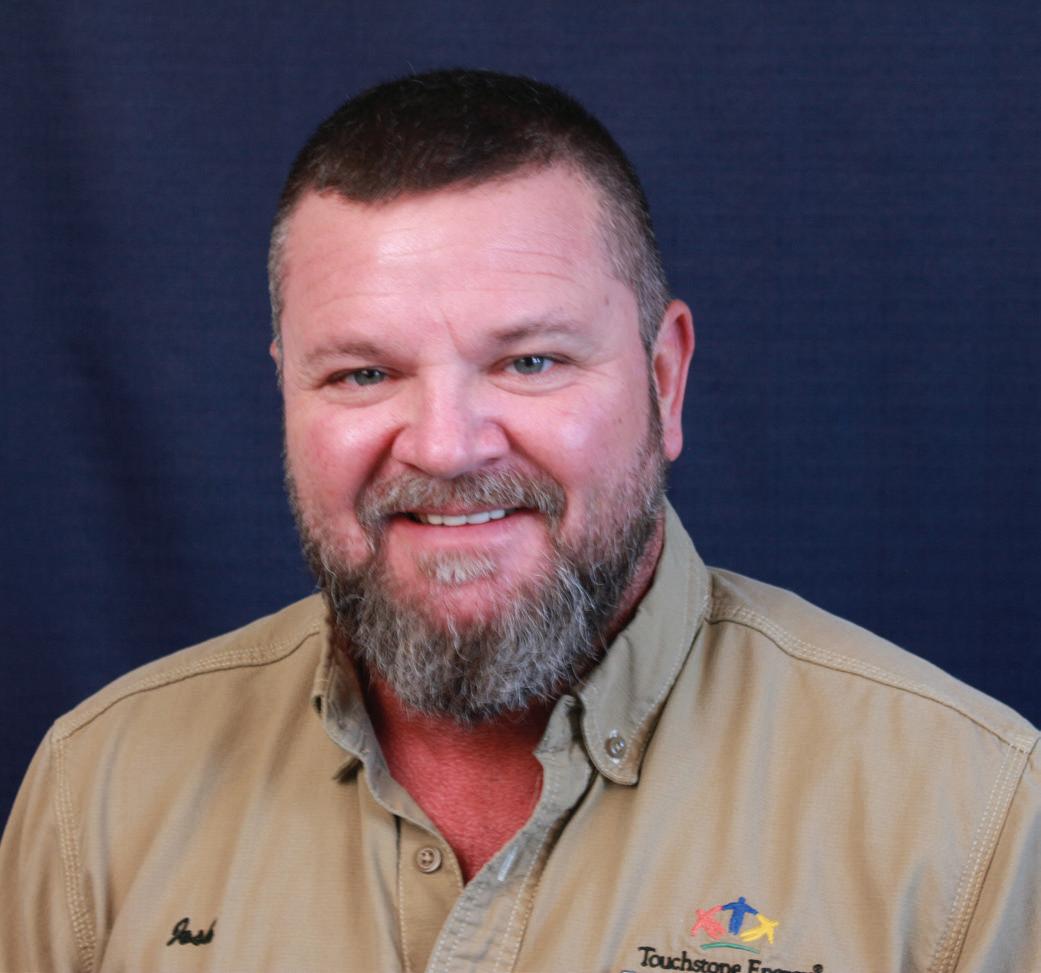
After an apprenticeship of more than 8,000 hours of training under our belts, we transition to journeyman lineman - that's when we're considered officially trained in our field. But, our education is ongoing. Linemen continuously receive training to stay mindful of safety requirements and up-to-date on the latest equipment and procedures. In fact, we took part in bucket truck rescue training just this week (March 19).
The Physical Demand:
The daily expectations of a lineman are physically demanding, but you won't hear any of us complain about that. I know what I signed up for - loading heavy materials, climbing poles and in and out of buckets, too. A lot of times, we go places the trucks can't, so I might be hiking through the woods loaded down with 40 pounds of personal protective equipment. But that's the job. Most of us are just glad to be outside.
The Sacrifices:
There are some sacrifices to being a lineman. I am often the first on the scene of an emergency, seeing things that are devastating like car accidents, structure fires and damage from severe storms. We get calls at all hours and in the middle of the night. I've missed a lot of hunting trips and family dinners, but my family is very supportive and it pays off in the end. As linemen, we make sure there is nothing standing in the way of helping our friends and neighbors get back to normal life.
Most people don't even consider the kind of work we do as linemen - more times than not, no one knows that we are out working unless they drive by, or God-forbid, we mess up or the power is already out.
Nevertheless, I truly love what I do because it's ever-changing from job to job. Yes, it is building power lines but the process and design is different for each and every one. The challenges include dealing with terrain that varies from plowed fields, well-kept yards and even swamps, creeks and rivers. It's tough work but when it's done I can look back at the job and think, "Wow, guys, we actually did it."
And, that is what gives me a sense of pride and fulfillment knowing what we just accomplished will deliver our members years of reliable service. It's Worth It:
I have a lot of pride in my work. Even when it is cold and wet, or terribly hot during the summer, I know I'm working to keep people warm or cool. There's a lot of satisfaction in hearing someone yell "thank you" from the window or porch after the lights come back on. No matter how tired I am or how long I have been working, that feeling always makes it worth it.
West Florida Electric Cooperative and its employees are members of this community. We live in the same neighborhoods. We shop at the same stores. Our kids go to the same schools. If your lights are off, there is a good chance ours are off, too. So, you can trust that we are doing our very best to get the lights back on as quickly and safely as possible - so you can get back to normal life.
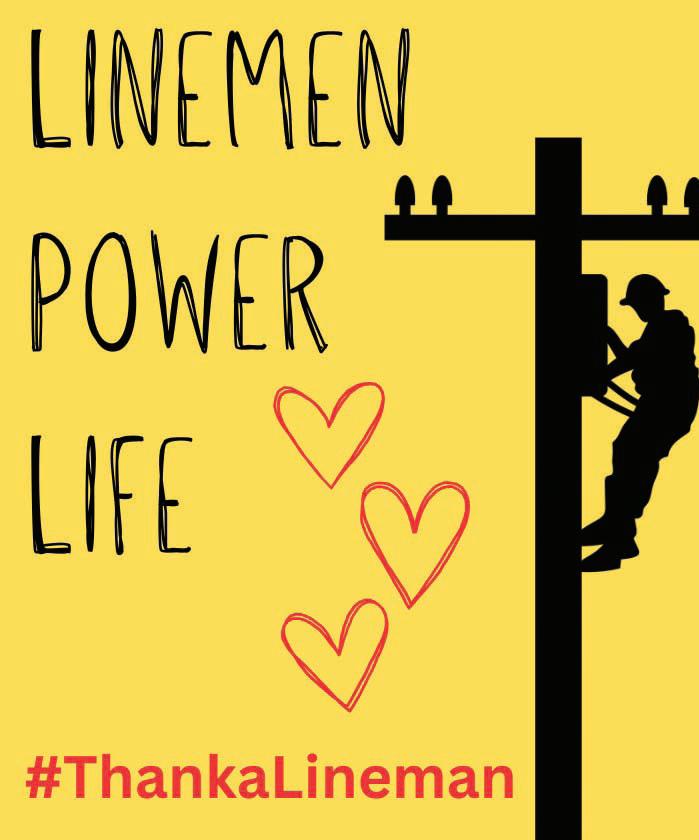
Known for their strength and agility, lineworkers are dedicated to ensuring our communities have reliable power. Safety is always top priority on the job, which is why lineworkers spend thousands of hours training as they advance their skills.
Here's a look at the career progression of a lineworker.
A crew leader is an advanced position that requires supervising lineworkers on job sites, coordinating with contractors and directing daily activities for crews.
Post-apprenticeship and roughly 7,000+ hours of training under the belt, journeyman lineworkers are fully trained in their field. They repair, update and install overhead & underground power lines, as well as other electrical equipment.
Before reaching lineworker status, they are required to work as an apprentice. Apprentice lineworkers earn competitive wages while receiving hands-on training and experience in the field. They typically spend four years in their apprenticeship.
Many lineworkers begin their career as a groundperson, or linehelper. They assist line crews with tools, keeping job sites safe and operating smaller equipment.
The energy industry is changing signigicantly - change driven by technology and the transmission to more sustainable energy. Innovation is essential in addressing these challenges and ensuring a continuous, reliable and affordable power supply.
Preparing for Increased Energy Use
Interest in electric vehicles (EVs) is growing. West Florida Electric Cooperative (WFEC) is available to help members make informed decisions about EVs, including electric charging options and capacity requirements for the home. Check out our online EV tool to learn more about them and the tax credits and rebates available. WFEC, like all electric providers, must plan now to have the necessary infrastructure in place to meet future EV charging needs - without jeopardizing the ability to provide reliable power.
Innovative Efficiency Solutions
WFEC is driven by a commitment to community and member satisfaction. Free energy evaluations for homes or businesses can help you take advantage of actionable energy-saving advice as well as efficiency services offered by the co-op. The cooperative's rebate programs and prepaid electric service are just a couple of examples of how WFEC helps you take control of your energy use.
Commitment to Community
You may not realize it, but WFEC is part of a a network of 900 electric co-ops nationwide. While we are locallyowned by you, the members of the co-op, we also have the advantage of working with co-ops across the country to share ideas and leverage the innovations our colleagues might have tried first. As cooperatives, we're collaborators instead of competitors - it is a unique aspect of our business model, and we're stronger because of it.
Our energy future will look different than it has in the past, but WFEC is prepared to adapt for the members we serve. Our mission and commitment to you remain steady - to provide reliable power at a cost local families and businesses can afford.

The energy industry is changing, but electric co-ops are known for adapting to their local members' needs. As we plan for changes and challenges ahead, innovative solutions are essential. Here are a few ways we're innovating for the future.
Use of AdvAnced Technologies: Smart meters provide real-time data and help pinpoint service issues.
PrePAring for increAsed energy Use: The demand for electricity is increasing as more technologies are electrified. Co-ops are exploring innovative solutions like battery storage to meet demand.
energy solUTions for MeMbers: Co-ops provide innovative efficiency services like rebates and flexible billing options to help members manage their energy use.
sTrengTh in nUMbers:
By working with and learning from other co-ops, we are uniquely positioned to improve service for our communities.

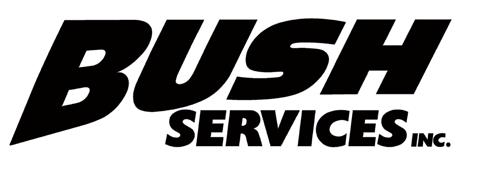







A well-designed landscape can add beauty to your home & reduce home heating and cooling costs. Plant deciduous trees with high, spreading crowns to the south of your home to block sunlight in the summer and reduce the need for air conditioning. Deciduous trees lose their leaves in the winter, allowing sunlight to warm your home. Plant evergreen trees & shrubs with low crowns to block winter winds. Dense evergreen trees & shrubs planted to the north and northwest are the most common type of windbreak & can help lower energy used for home heating. Justin Joyner 850-658-2890 Chainlink Barbed Wire Vinyl Fence Wood Fence Field Fence “New” “Used” Repairs & Land



Land Clearing & Forestry Services
Dozer

www.claycoforestry.com
clayslandclearing@gmail.com


Multi-County Private Well & Water Quality Workshop
April 11; 9:00 a.m.-11:30 a.m.
UF/IFAS Extension Office, 20816 Central Ave. E, Blountstown & via Zoom
If you want to learn steps you can take to ensure your water is safe and what you can do to protect groundwater quality, join us. We'll cover how private wells & septic systems work, maintenance, and how to protect your water quality. This workshop is presented by UF/IFAS Extension Bay, Calhoun, Holmes, Jackson and Washington Counties. Registration is $5/person. Facilitated water testing is available - testing rates will vary depending on the test. For prices or to register: https://JacksonCountyFCS.eventbrite.com or call 850-482-9620. Pre-registration is encouraged and virtual options are available. UF is an Equal Opportunity Institution. For disability accommodations, contact Claire Davis (reach.c@ufl.edu) or 850-674-8323.
Homebuyer Education Class
April 23 & April 30; 6:00-9:00 p.m.
Washington Co. Ag Center, 1424 Jackson Ave., Chipley
Understand home buying, analyze personal financial and credit situations & learn basic home care/maintenance to help maintain the value of your home/save money. Pre-registration is required. The Florida Cooperative Extension service is a HUDapproved housing counseling agency. Completion of the course satisfies the homeownership education requirement for the SHIP and USDA Rural Development program. For more info call 850-482-9620 or 850-638-6265. UF is an Equal Opportunity Institution. Require assistance? Call 800-955-8771.
Pressure Canning & Dehydration Class
April 27; 9:00 a.m.-1:00 p.m.
Jackson Co. Ag Office, 2741 Penn Ave., Marianna
This course is designed to help you understand the science of canning and dehydrating work, proper food safety techniques, differences in canning methods, and how to properly preserve food using a pressure canner. The fee is $20/person and participants will take home a sample jar of chicken prepared in class. Pre-registration is required. Call 850-482-9620 with questions. UF is an Equal Opportunity Institution. For disability accommodations, contact Terri Keith (terri2003@ufl.edu) or 850-482-9620.
WFEC Trustee Election Ballots Due Back to CRI, CPA: April 17
WFEC Annual Meeting/Member Appreciation Day: April 27
Graceville Civic Center (more details below)

Young laying hens, $20 each, buy 6, $15 each; ready-built pen, $295, cash; 850-577-1629.
ACER flat screen computer monitor, Model S22OHQL 21”, $25; nice computer desk, $50; 850-592-4740.
2022 Mahindra CAB-loader, 160 hours, 1635 HST, 38 HP tractor, warranty, payoff is $29,000; 850-526-8027.
Troy Bilt rear-tine tiller, used 1 1/2 hours, will trade for front tine same value, price $600; 850-272-2208.
2017 Kubota tractor, diesel, eight-cylinder, front loader, 5’ mower, 5’ box blade, barely used, good condition; 850-305-1590.
Vicon hay cutter, CM2400, lift type, 7.10 ft., well-maintained, one owner, everything works as it should, field ready; 850-592-4798.
HP Model PSG1315xi printerscanner-copier, with two extra sets of color and black replacement ink cartridges, $25; 850-592-4740.
Ladies Rolex watch, in new condition, $1,200; 850-643-8557.
Franchi auto shotgun, 12-gauge w/extra slug barrel, $850; 850-643-8557.
Multiple Listings
Bicycle rack, $75 OBO; diving tank, $50; wood table + 4 chairs, $100 OBO; 2 big Kenwood speaker, $110 OBO; 850-226-3422, Juan.
Square bale annual peanut hay; square bale grass hay; 12x36 walk-in cooler; 850-263-3427.
Coleman Mule; 6’ box blade; potato rake; cast iron tub; two Maytag wringer washers; 1/2” poplar boards; antique tractors; 850-547-2864.
Homemade/handmade quilts, lap quilts, baby quilts, twin, full or queen; two used bathtubs to be used for water or feed troughs, great price; 850-547-3649.
to publish any ad . 7) You may submit your ad online at www.westflorida.coop WFEC will not accept ads over the phone.
Grain wagon; 3-horse slant trailer; barrel, roping, pleasure saddles; tack; gentle pony; coon dog; 850-592-2494 or 850-209-8532.
120 piece Asian, American, Chinese pottery, ceramic, porcelain; 25 old paintings, art; two clamp-on trolling motors; 55 pounds of Stewart pecans; Military uniform collection; 850-674-6242.
8.5 acres prime pasture farmland, for sale by owner, road frontage, pole barn, new well, 3BR 1997 mobile home on site; 334-560-6019.
16 acres of land in the Graceville area, portions farmable; 727-403-4463.
Doublewide mobile home, $5,000, must be moved, located near intersection FL-2 & Co. Rd. 179 Holmes County; 561-459-9213.
Vehicles
2012 Honda Civic LX Coupe, high mileage, excellent mechanical condition, adult owned and driven, fair body, $3,000; 850-209-0290.
Horses; ponies; mules; donkeys; 592-2494 or 850-209-8532.
150-500 acres pastureland, in Holmes or Washington County; 850-234-7070.
Penny through dollar coins, loose, in jars, collections and estates, buy, trade, or sell; 850-326-3437.
Enclosed trailer; 850-332-8876, call or text.
License plates from any state, mainly Florida, prior to 1980; old motorcycles or parts prior to 1960; 850-557-7030, Greg.
Good, used washing machine, free for the taking; 850-643-8557.
Notice is hereby given that the West Florida Electric Cooperative Association, Inc. Board of Trustees regularly meets on the fourth Tuesday of each month, unless special circumstances warrant a change. Main Business and Publications Offices 5282 Peanut Road Graceville, Florida 32440-0127 (850) 263-3231 or 1-800-342-7400
Although paid advertisements may appear in
(WFEC) publications in print, online, or in other electronic formats, WFEC does not endorse the advertised product, service, or company, nor any of the claims made by the advertisement. WFEC reserves the right to edit or refuse to publish any advertisement, article or information. This Institution is an equal opportunity provider and employer.






